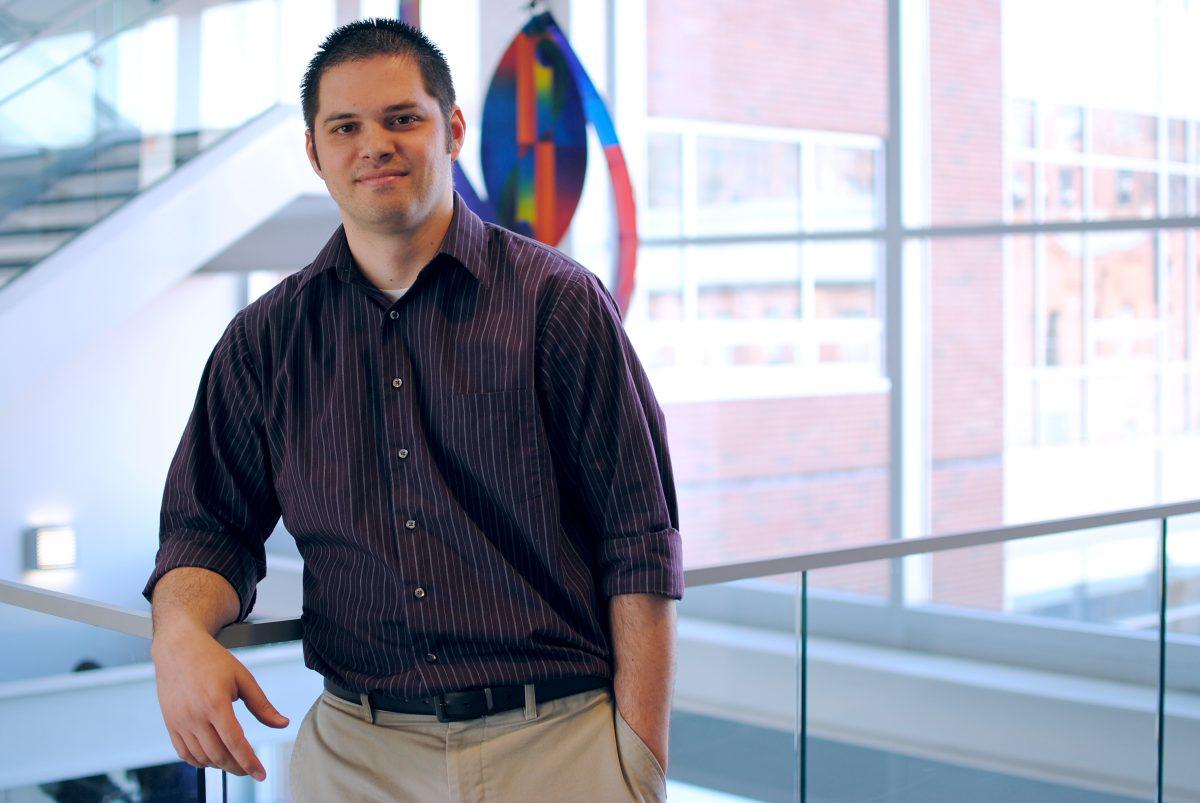After becoming the second N.C. State faculty member to receive the Alfred P. Sloan Foundation’s annual Sloan Research Fellowship in February, Jonathan Hauenstein, an assistant professor of mathematics, said he is working to expand his research team and continue his interdisciplinary research of algorithms.
Since 1955, early-career scientists have been awarded the two year, $50,000 fellowship to expand research in the fields of chemistry, computational and evolutionary molecular biology, computer science, economics, mathematics, neuroscience, ocean sciences and physics.
Hauenstein, age 26, is amongst 126 other young researchers from the United States and Canada to be awarded the fellowship. The award is geared toward new professionals in their respective fields. To be eligible, applicants must be young in their field of study rather than age. Fellows cannot have held a Ph.D for more than 6 years. Hauenstein received his Ph.D. in mathematics from the University of Notre Dame in 2009.
Winners were chosen by senior scholars who judged candidates by the content of their research, as well as their accomplishments and potential to be leaders in their field, according to The Alfred P. Sloan Foundation’s recipient announcement press release.
Hauenstein said he was nominated by the N.C. State math department for his research in producing problem-solving algorithms.
“Overall, my research is in designing numerical algorithms for solving systems of equations,” Hauenstein said. “I’m going to use the money to continue to build my research team.”
Hauenstein’s research team currently consists of himself, two post-doctoral researchers, two graduate students and one graduate student, who he co-advises.
According to Hauenstein, he plans to use his $50,000 to pay for his research team to travel to conferences, give presentations and run a summer program for graduate students.
Hauenstein said his research reaches beyond the field of mathematics because his work involves problems found in fields such as biology, engineering, chemistry and physics.
“It’s completely interdisciplinary,” said Hauenstein. “I am on the mathematical side of designing the algorithms, but I’m interdisciplinary, in that I look for applications in science and engineering.”
According to Hauenstein, chemists are interested in the measuring of chemical reactions and said his work seeks to approximate different states of reactions.
“I design the algorithm, then I design software that implements the algorithms so that scientists can download the software and use it to solve their problems,” Hauenstein said.
Algorithms also help in designing mechanisms in the field of engineering, such as robots, and in the field of biology, algorithms can be used to predict tumor growth by outlining boundary change, according to Hauenstein.








